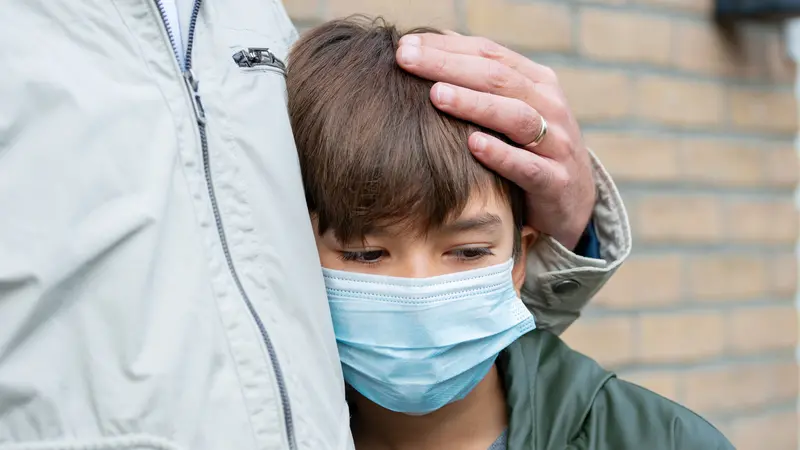

COVID-19

COVID-19
Pandemic Impacts Youth Mental Health Around the Globe
COVID-19 quarantines have had a devastating effect on people everywhere, but studies indicate that children have suffered the most. Published in JAMA Pediatrics, one study reflects on just how profound the impact has been on the mental health of children of all ages.
Analyzing 29 studies on anxiety and depression in children and adolescents around the world from January 2020 to February 2021, the research included 80,879 youth participants. Researchers found that the rates of anxiety and depression in children between the ages of 4 and 17 nearly doubled during those 13 months. The data also revealed that one out of every five children experienced an increase in anxiety symptoms and one in four teens now suffer from depression.
Without mature coping mechanisms, stressors exacerbate mental health problems for many children. Since they need consistency to feel safe, the uncertainty of schedules, lack of regular routines, social isolation, cancelled extracurricular activities, and school closures left many feeling unstable.
There are several signs to watch for that indicate a child is suffering from anxiety and/or depression. It will often manifest as uncontrollable worries and fears. They may be easily startled, stop enjoying activities they once loved, have a decreased appetite, isolate, and/or experience a deep sense of sadness. The general unpredictability of the pandemic has led to feelings of hopelessness for many, which is a primary indicator of suicidal thoughts. In May of 2021, Jena Hausmann, the CEO of Children’s Hospital Colorado declared a youth mental health "State of Emergency" as suicide had become the number-one cause of death for children in Colorado.
To support children and teens, it’s important to talk to them about their concerns and fears, validate their feelings, get them back into a daily routine for school, meals, homework, screen time, and sleep. Providing safety and structure while listening to their concerns will go a long way in helping children heal during these challenging times.
REFERENCES
Amen Clinics. (2021, September 2). Kids in crisis: The pandemic’s toll on childhood mental health. https://www.amenclinics.com/blog/kids-in-crisis-the-pandemics-toll-on-childhood-mental-health/?


 By
By







